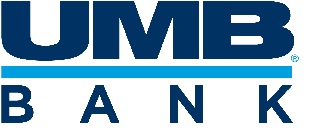Antitrust GuidelinesFor Members of the Association of Legal Administrators Professional associations such as the Association of Legal Administrators (ALA), although well recognized as valuable tools of American business, are subject to severe scrutiny by both federal and state governments. The single most significant law affecting professional associations is the Sherman Antitrust Act, which makes unlawful "every contract, combination in the form of trust or otherwise, or conspiracy, in restraint of trade or commerce… A professional association by the very nature of the fact that it is made up of competitors is a combination, thus satisfying one of the elements in proving an antitrust violation. Section 5 of the Federal Trade Commission Act is also applicable to professional associations; it makes unlawful the same types of conduct that are prohibited by the Sherman Act. Furthermore, almost all states have enacted antitrust laws similar to the Sherman Act. There is no organization too small or too localized to escape the possibility of a civil or criminal antitrust suit. The federal government has brought civil or criminal actions against such small organizations as Maine Lobstermen, a Virginia audio‐visual association, Bakersfield Plumbing Contractors, the Utah Pharmaceuticals Association, and local barbers associations. The government has brought approximately five civil and ten criminal cases a year against professional associations. It is thus imperative that every professional association member, regardless of the size of the association or the size of those comprising the membership, refrain from indulging in any activity which may be the basis of a federal or state antitrust action. There are four main areas of antitrust concern for professional associations: price fixing, membership, standardization and certification, and industry self‐regulation. The area of greatest concern, for it is the area where individual members are most likely to violate the law and the area where the government appears most concerned, is price fixing. The government may infer a violation of the Sherman Act by the mere fact that all or most of the members of the professional association are doing the same thing with respect to prices. It is not required that there be an actual agreement, written or unwritten, to increase prices. Rather, price fixing is a very broad term which includes any concerted effort or action which has an effect on prices or on competition. Accordingly, professional association members should refrain from any discussion which may provide the basis for an inference that the members agreed to take action relating to prices, production, allocation of markets, or any other matter having a market effect. The following topics, while not the only ones, are some of the main ones which should not be discussed at regular meetings or member gatherings :
Do not conduct surveys (under the auspices of ALA or informally) relating to fees, wages or other economic matters without prior review by antitrust legal counsel. Any survey should have the following characteristics: a) participation is voluntary and open to non‐members, b) data should be of past transactions, c) data should be collected by an independent third party, such as an accounting firm, d) confidentiality of each participant's data should be preserved, and e) data should be presented only in a composite form to conceal data of any single participant. If these criteria are met, an association can collect and disseminate data on a wide range of matters, including such things as past salaries, vacation policies, types of office equipment used, etc. However, care must be taken to ensure that the purpose of any survey is to permit each firm to assess its own performance. If a survey is used for the purpose of or has the effect of raising or stabilizing fees, wages, disbursements, credit policies and the like, it will create serious antitrust problems. Within this same legal framework applicable to surveys, an association can make presentations or circulate articles regarding such educational matters as establishing sound office procedures, etc., provided it is clear that the matters are educational, and not a basis for law firm uniformity or agreement. Inasmuch as association antitrust violations can subject all association members to criminal and civil liability, members should be aware of the legal risks in regard to membership policy and industry self-regulation. Fair and objective membership requirement policies should be established. Membership policies should avoid:
The Association of Legal Administrators has a code of ethics, which sets forth parameters of ethical conduct. However, to ensure that the Code of Ethics does not create any antitrust problems, ALA must continue to ensure that its Code does not have arbitrary enforcement procedures or penalties. The penalties for violating federal or state antitrust laws are severe. The maximum criminal penalty for violating the Sherman Act was increased in 2004 from $350,000 to $1,000,000 for an individual and from $10,000,000 to $100,000,000 for a corporation. Pursuant to the Sentencing Reform Act, alternative maximum fines could be increased to twice the pecuniary gain of an offender or twice the loss to another person. Individuals and corporate officers who are found guilty of bid rigging, price fixing or market allocation will virtually always be sentenced to jail pursuant to the Sentencing Guidelines; community service cannot be used to avoid imprisonment. The minimum recommended sentence is four months; the maximum is three years. Additionally, there are civil penalties such as injunctions or cease and desist orders which could result in government supervision of association members, restricting the association's activities or disbanding the association. Civil suits may be brought by consumers or competitors. Civil antitrust actions result in treble damage awards and attorneys' fees. Thus, if association members are held liable to a competitor for antitrust violations which resulted in $500,000 worth of lost business, the verdict may exceed $1,500,000. The government's attitude toward professional associations requires professional association members, as well as professional associations themselves, to at all times conduct their business openly and avoid any semblance of activity which might lead to the belief that the association members had agreed, even informally, to something that could have an effect on prices, fees or competition. Thus, it is important that members contact the association headquarters or legal counsel for guidance if they have even the slightest qualms about the propriety of a proposed activity or discussion. |






